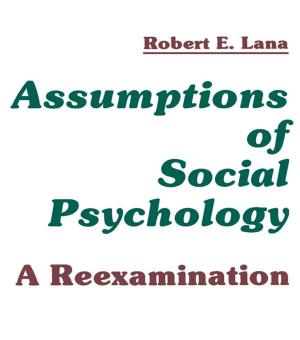Human Rights in Global Perspective
Anthropological Studies of Rights, Claims and Entitlements
Nonfiction, Social & Cultural Studies, Political Science, Politics, Civil Rights, Social Science, Anthropology| Author: | ISBN: | 9781134409747 | |
| Publisher: | Taylor and Francis | Publication: | September 2, 2003 |
| Imprint: | Routledge | Language: | English |
| Author: | |
| ISBN: | 9781134409747 |
| Publisher: | Taylor and Francis |
| Publication: | September 2, 2003 |
| Imprint: | Routledge |
| Language: | English |
In the West we frequently pay lip service to universal notions of human rights. But do we ever consider how these work in local contexts and across diverse cultural and ethical structures? Do human rights agendas address the problems many people face, or are they more often the imposition of Western values onto largely non-Western communities?
Human Rights in a Global Perspective develops a social critique of rights agendas. It provides an understanding of how rights discussions and institutions can construct certain types of subjects such as victims and perpetrators, and certain types of act, such as common crimes and crimes against humanity. Using examples from the United States, Europe, India and South Africa, the authors restore the social dimension to rights processes and suggest some ethical alternatives to current practice.
In the West we frequently pay lip service to universal notions of human rights. But do we ever consider how these work in local contexts and across diverse cultural and ethical structures? Do human rights agendas address the problems many people face, or are they more often the imposition of Western values onto largely non-Western communities?
Human Rights in a Global Perspective develops a social critique of rights agendas. It provides an understanding of how rights discussions and institutions can construct certain types of subjects such as victims and perpetrators, and certain types of act, such as common crimes and crimes against humanity. Using examples from the United States, Europe, India and South Africa, the authors restore the social dimension to rights processes and suggest some ethical alternatives to current practice.















